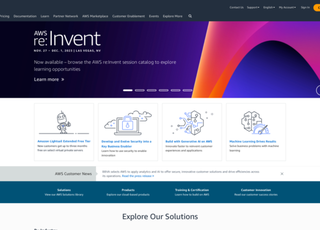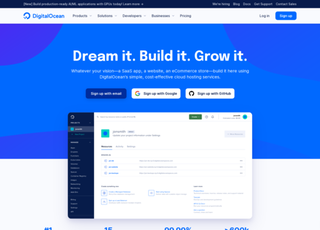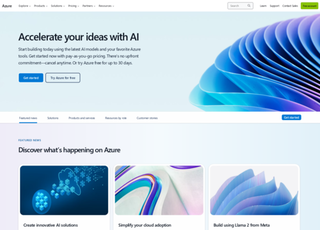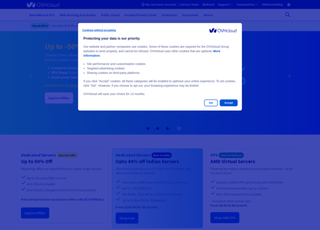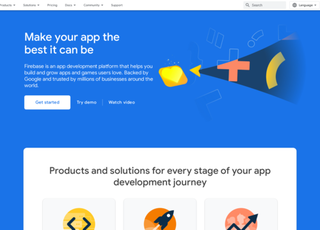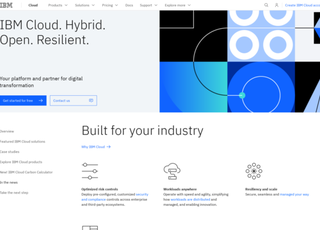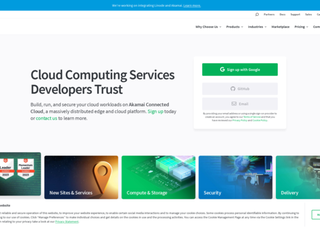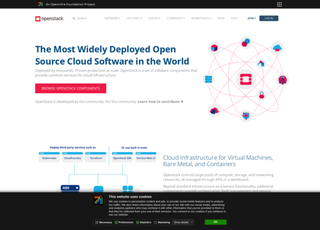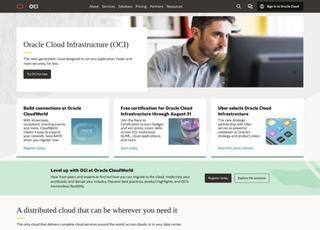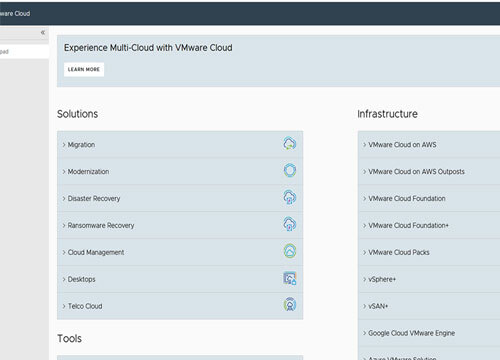Heroku
https://www.heroku.com/Heroku
Heroku is a cloud platform as a service (PaaS) that enables developers to build, run, and operate applications entirely in the cloud. It's designed to simplify the deployment process of web applications.Detailed look at its key aspects:
Simplicity and Ease of Use
Heroku is known for its ease of use. It allows developers to deploy their applications with simple commands. This ease of deployment is particularly beneficial for small teams or individual developers who might not have extensive resources for managing infrastructure.
Support for Multiple Programming Languages
Heroku supports several programming languages, including Ruby, Java, Node.js, Scala, Clojure, Python, PHP, and Go. This wide range of supported languages makes it a versatile platform for different types of projects.
Heroku Ecosystem
Heroku offers a range of add-ons through its marketplace, which provides tools and services for database management, monitoring, analytics, and more. These add-ons can be easily integrated into applications, enhancing functionality and performance.
Container-based Architecture
Heroku uses a container model called "dynos" for web app deployment. Dynos are isolated, virtualized Linux containers that provide the environment required to run an application. This architecture allows for efficient scaling and management of applications.
Scaling and Load Balancing
Heroku provides easy scaling capabilities. Developers can scale their applications horizontally (adding more dynos) or vertically (upgrading to more powerful dynos). Heroku automatically balances the load to keep the app running smoothly.
Data Services
Beyond app deployment, Heroku also offers data services like Heroku Postgres, Redis, and Kafka, providing reliable and managed data storage solutions.
Continuous Integration and Delivery
With features like Heroku Pipelines, GitHub integration, and Review Apps, Heroku supports continuous integration and continuous delivery workflows, making it easier for teams to build, test, and deploy applications.
Security and Compliance
Heroku places a strong emphasis on security. It provides features such as automated patch management, continuous monitoring, and compliance with various standards to ensure the security of applications.
Heroku Enterprise
For larger organizations, Heroku Enterprise offers additional features like team collaboration, enhanced security, and dedicated support.
Developer Experience
One of the core principles of Heroku is enhancing the developer experience. The platform aims to reduce the complexity and operational overhead, allowing developers to focus more on building the actual application rather than managing servers.
Integration with Salesforce
Being part of the Salesforce family, Heroku offers seamless integration with Salesforce services. This is particularly valuable for businesses that rely on Salesforce for CRM and other business operations, as it allows for the easy sharing and manipulation of data between Heroku apps and Salesforce.
Heroku Connect
A feature specifically designed to sync data between Heroku and Salesforce. It enables developers to create applications that interact deeply with Salesforce data, leveraging the vast capabilities of the Salesforce platform while enjoying the flexibility and ease of Heroku for app development.
App Monitoring and Analytics
Heroku provides tools for monitoring the health and performance of applications. Features like Heroku Metrics, Logging, and APM (Application Performance Monitoring) services offer insights into app performance, helping developers identify and fix issues promptly.
DevOps Approach
Heroku encourages a DevOps culture by providing tools that support automation, collaboration, and rapid deployment. This aligns with modern software development practices, where the boundaries between development and operations are increasingly blurred.
Heroku CLI and Dashboard
The Heroku Command Line Interface (CLI) is a powerful tool for managing Heroku apps directly from the terminal. For those who prefer a graphical interface, the Heroku Dashboard provides a web-based interface for managing applications, resources, and add-ons.
Git-based Deployment
Heroku uses Git, the popular version control system, for deploying applications. This means developers can use familiar Git commands to deploy their applications. This integration streamlines the process of version control and deployment.
Buildpacks
Heroku uses buildpacks - a collection of scripts - to compile or prepare your app for deployment. These buildpacks are language-specific, ensuring that your application's dependencies are correctly installed and configured.
Dynos Lifecycle and Sleep Mode
In its free tier, Heroku dynos will sleep after a period of inactivity, which can lead to a slight delay in response when they are accessed after being idle. This is an important consideration for apps that require constant availability.
Custom Domains and SSL
Heroku allows you to use custom domain names for your applications and supports SSL (Secure Sockets Layer) for secure connections, which is vital for maintaining the security and professionalism of web applications.
Heroku's Pricing Model
Heroku offers a range of pricing plans, including a free tier with limited resources. The paid plans are based on the resources (dynos, database, add-ons) used, allowing for a flexible scaling of costs in line with application growth and usage.
Heroku combines the simplicity of platform management with powerful features and integrations, making it a go-to choice for developers looking to build and scale applications in the cloud without the overhead of managing infrastructure. Its focus on developer experience, along with its robust ecosystem, makes it a comprehensive solution for modern application deployment.





















